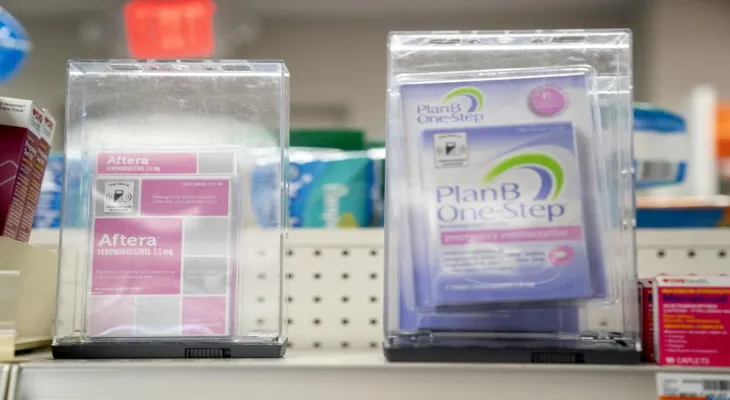Search here
Newspaper
Search here

Arab Canada News
News

Published: July 23, 2022
After the U.S. Supreme Court overturned the constitutional right to abortion for women, Julie Crow, a resident of Nashville, Tennessee, hurried to place an online order for ten emergency contraceptive pills.
Crow (52 years old) is not the only one who reacted this way to the historic court decision issued on June 24. The following day, many American women hurried to buy emergency contraceptive pills in quantities sometimes reaching dozens, fearing that time would run out on them or that their states might impose restrictions on possessing these pills in the future.
Within the 24 hours following the ruling, the medication sales site "Wisp" recorded an unprecedented 3000 percent increase in sales of emergency contraceptive pills. The upward sales trend continued for several days, setting consecutive record numbers, before stabilizing at a certain figure.
Warnings of adverse consequences
However, health specialists do not recommend buying these contraceptive pills that come in various models, through which a woman can terminate her pregnancy with just one pill. They consider that taking them is unnecessary and may even lead to adverse outcomes.
Crow was very interested in knowing whether the conservative state of Tennessee would ban "delivery of orders" to women. But above all, she wanted to be able to provide help to any woman around her who wanted to regain "control of her life."
Crow said, "It is crazy to see our country regressing on matters related to civil rights and people's freedom over their bodies."
Emergency contraceptive pills differ from other products that allow a woman to undergo a medication abortion during pregnancy, as a single dose is taken within five days after unprotected sex. The pill's effectiveness increases the sooner the woman takes it.
Encouragement to stockpile
Following the U.S. Supreme Court ruling, calls spread encouraging women to stockpile emergency contraceptive pills, prompting the giant e-commerce company Amazon and the American pharmacy chain CVS to impose a maximum limit on the quantities of pills available for sale within a short period.
Although reproductive health specialists, alongside the American Family Planning Association, recommend stocking one contraceptive pill for use in case a woman needs it, these two entities do not advise storing large quantities of the pills at home.
Hailey McMahon, a researcher specializing in reproductive health in the United States, said that the idea of not being able to put an end to unwanted pregnancy can leave some with "a strong feeling that they are dealing with their bodies in a way that does not align with their will."
But with limited quantities of pills in pharmacies, "no one wants to empty this stock at a time when a woman might desperately need an emergency contraceptive pill."
Spread of misinformation
McMahon pointed out that this rush to buy large quantities of contraceptive pills is fueled by misinformation spreading online and confusion between emergency contraceptive pills and abortion pills that allow women to undergo this procedure.
Some states banned abortion pills following the Supreme Court ruling, while emergency contraceptives were not affected by any ban in any state.
Savannah Norville, a childcare provider from Richmond, Virginia, also placed an online order to buy six emergency contraceptive pills in order to redistribute them to women who need them. Norville lives in a popular neighborhood predominantly inhabited by female students.
Access to reproductive health services represents a personal struggle for the young woman, as she underwent an abortion at age 18 due to being raped. At that time, she felt "shame" and loneliness. She did not know where to get emergency contraceptive pills, time ran out on her, and she had to resort to abortion.
Doctors consider that women who stockpile pills like Norville do so in good faith, but their step is not wise.
No benefit
Caroline Morrow, a reproductive health specialist at Johns Hopkins University, said, "As long as emergency contraceptives are available in stores, there is no benefit to citizens sending them by mail to others in different states."
McMahon noted "there is no need to reinvent the wheel," praising the work of local organizations striving to keep these products easily accessible.
A group of Boston University students recently installed a machine providing emergency contraceptive pills on campus, hoping to expand this initiative to other universities.
Comments